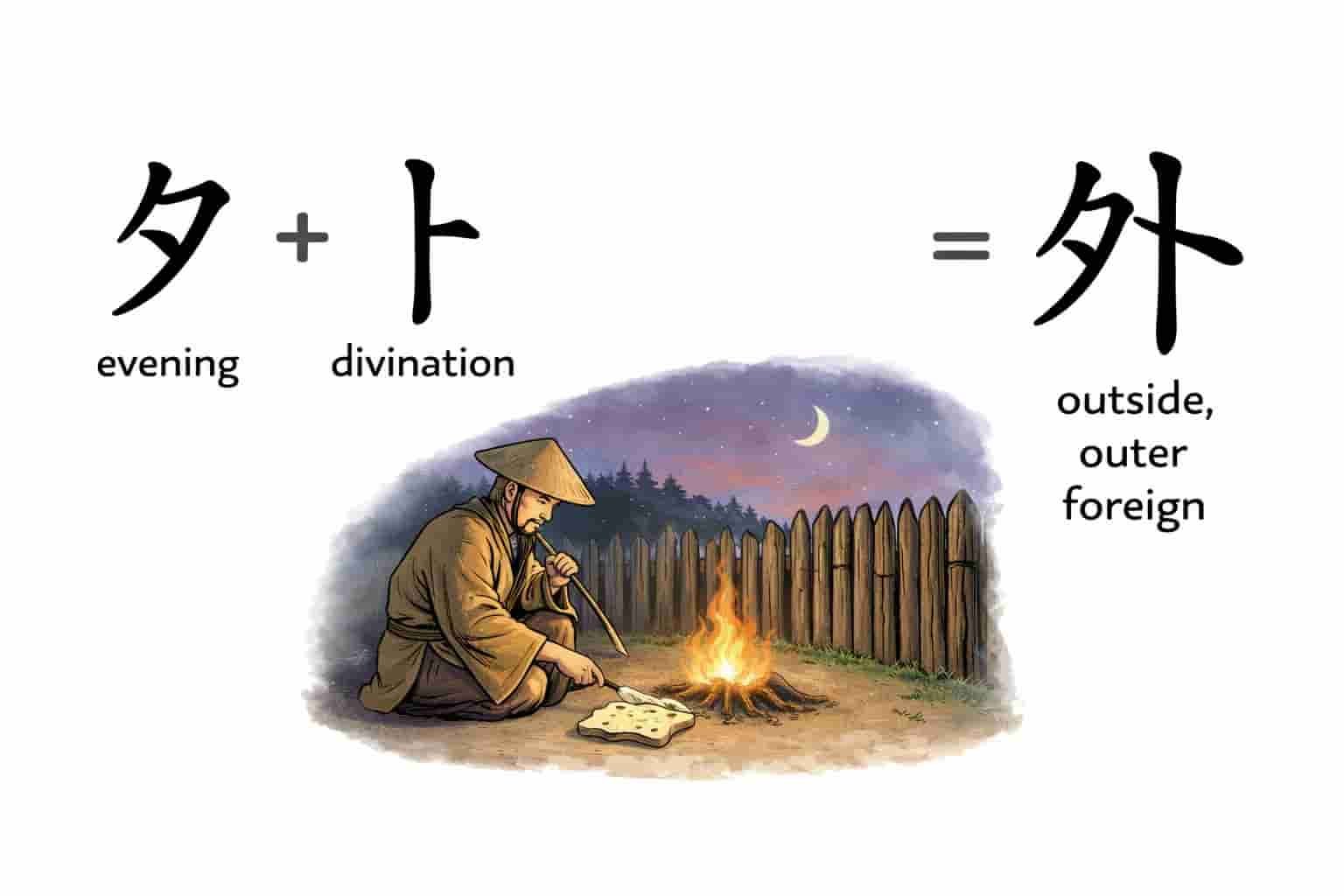外 – JLPT N5 Kanji, Kanji for outside (With 3D Visualization)
Kanji for outside
Fast lookup with examples and clean stroke-order visualization.
Experience 外 in 3D! View the complete 3D Kanji model to understand its shape and stroke depth from every angle. Click the button below to see 外 in 3D and explore how each stroke forms this character.
Please support us by sharing!
外
- Meanings
- outside
- Onyomi
- ガイ
- Kunyomi
- そと, はず.す, はず.れる
- Name Readings
- うい, け, ふか
- JLPT
- N5
- Grade
- 2
- Frequency
- -
- Kanji Writing Practice
- Practice
Stroke Order
Story
The kanji 外 is built from two parts: 夕 (evening) and 卜 (divination mark or prediction). In ancient times, people used 卜 for fortune-telling — marks carved outside the village, often at night or in the evening (夕). Together, these parts gave the sense of something happening beyond the usual place or time — outside the normal boundaries. Over time, 外 came to mean “outside,” “outer,” or “foreign,” anything beyond what is inside or familiar.

Short Story
Formed from 夕 (evening) and 卜 (divination mark), 外 shows the idea of something beyond the familiar — outside the home, the border, or what you already know.
Mnemonic
This kanji declares: from evening (夕) and the mark of divination (卜) comes what lies beyond — 外 means outside, the world beyond the walls you know.
Vocabulary Examples
| Word | Reading | Meaning | Meta |
|---|---|---|---|
| 外 | そと | outside, exterior | common JLPT-N5 Noun |
| 他 | ほか | another place, some other place, somewhere else, outside | common JLPT-N3 JLPT-N5 Noun |
| 余所 | よそ | another place, somewhere else, strange parts | common JLPT-N2 Noun, Noun which may take the genitive case particle 'no' |
| 外 | がい | outside ..., beyond ..., not included in ... | common Suffix |
| 外国人 | がいこくじん | foreigner, foreign citizen, foreign national, alien, non-Japanese | common JLPT-N5 Noun |
| 外交 | がいこう | diplomacy | common JLPT-N3 Noun |
| 外国 | がいこく | foreign country | common JLPT-N5 Noun, Noun which may take the genitive case particle 'no' |
| 外出 | がいしゅつ | going out, outing, leaving (one's home, office, etc.) | common JLPT-N3 Noun, Suru verb, Intransitive verb |
| 外す | はずす | to remove, to take off, to detach, to unfasten, to undo | common JLPT-N3 Godan verb with 'su' ending, Transitive verb |
| 外れる | はずれる | to be disconnected, to get out of place, to be off, to be out (e.g. of gear) | common JLPT-N2 Ichidan verb, Intransitive verb |